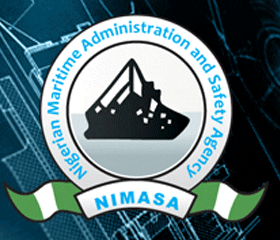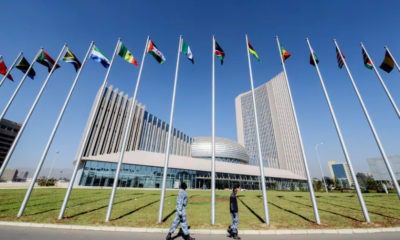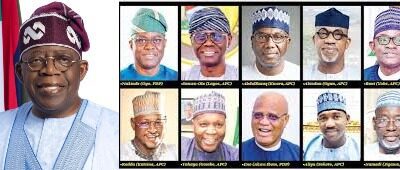Political Issues
It can’t be both ways -By Sesugh Akume

There are good and bad problems as people everywhere have their own sets of difficulties. A business, for instance, that has more paying customers than it can serve at a time has a problem, albeit a good one, as opposed to a business that has few or no customers at all, with more supply than demand. This is a bad problem, the kind we are more used to.
In Nigeria, for instance, we have a terribly bad infrastructure problem and extremely poor social services which is at the heart of our multidimensional poverty. We can’t be productive, much less, competitive without these in place.
For instance, according to Babatunde Fashola, the works and housing minister, of the 193,200 kilometers of the road network in the country, only 28,980 kilometers are paved. That’s fewer paved roads, by kilometers and percentage, than there were in the ancient Roman Empire thousands of years ago! But how can this embarrassing situation of unpaved, inaccessible roads be solved when we annually allocate more money in servicing debts than in building infrastructure, and spend even more on recurrent expenditure (spending on running the government itself, and on the people working for the government) which is of no value to the vast majority of us outside of the government circle?
It is so bad that the government is now borrowing to run recurrent expenses, and to service loans, as it keeps borrowing nonstop. When in a hole you stop digging! It is even more disconcerting that at this time, every member of the National Assembly wants one new commission or the other created, or a new university or polytechnic in their constituency either established or an existing school upgraded and taken over by the federal government. This is how they hope to impress the people who vote for them. But no one is answering where (and how) the money is coming to run the institutions they are sponsoring bills to establish. What we do need, to be realistic, is fewer government establishments, not more. We can’t afford them.
Their usual solution to the absence of electricity, as part of their ‘constituency projects’, is to procure transformers and connect communities to the inadequate, epileptic, and already overstretched single national grid providing for 200 million Nigerians less than a quarter of the energy the city of Dubai alone consumes. Yet, as reported by the Rural Electrification Agency, 67% of Nigerians have no access at all, with 70% of those living farther than a kilometer from the nearest electricity pole. Their solution to poor access to clean water is to drill boreholes that usually last no longer than 2 seasons and pack up. Whereas, 5,000 years ago, others were already piping water to their homes for their water cisterns and other uses, as well as, organising vast irrigation systems to improve their agriculture. Boreholes can never achieve any of these. We can surely do better than we are present.
One of the most beautifully-crafted and effectual pieces of legislation by the National Assembly is the Infrastructure Concession Regulatory Commission (ICRC) Act (2005), further supported by the National Policy on Public-Private Partnerships (2009). These make it possible for governments at all levels (local, state, and federal) and their agencies to own big-ticket infrastructure of impact they normally can’t afford like many kilometers of paved roads with add-ons like streetlights; bridges, (sea and/or river) ports, airports, waterworks (for home, industrial or agricultural usage), off-grid electrification, housing, rail systems, hospitals, and anything else that can be imagined. And not only built but also expertly run, through public-private partnerships (PPPs) utilising the billions of dollars the private sector has, along with industry expertise and managerial acumen, none of which the government has.
A major problem the government has is a paucity of funds — lack money to do all that needs to be done (sadly, the little it has is usually stolen and/or wasted.) A problem others have is too much money. Keeping it in the bank to lie fallow in one place is risky to them, they prefer always having their money on the move. If, therefore, there is an opening to invest, say $10 million in a project which is safely estimated to return say $13 million in 30 years, there are businesses that will be more than happy to take it up, especially if they will be the ones manning the facility within the 30 years, and are allowed to do so as they deem best without encumbrances. This way, everybody gains. Most importantly, the public enjoys the facility as it eases life and boosts their productivity. The users will be more than willing to pay a token for each use. This token put together, is deployed in maintaining the facility to keep it in top shape always, as improving as, improving and even expanding it. The concessionaire (private sector business) itself oversees facility as best as it can be, that way guaranteeing its sustainability, whilst making a profit in the long term. The government on its part owns the facility even within the time the concessionaire operates it.
Assuming that there is much traffic across a certain river, for instance, that is an indication that a bridge is needed for vehicular movement. With that bridge, motorists would be happy to pay, say, a hundred naira per crossing as long it exists. This is one thing most government projects lack, a needs assessment. They construct bridges nowhere leading to nowhere. Or if you are like Fashola, you allot public funds to rehabilitate nonexistent bridges year in year out and refuse to be accountable. This can’t happen with PPP projects as they must of necessity be bankable with all manner of impact and other assessments done before they are entered into in the first place because they are run on a value-for-money basis. All these are usually contained in the outline business case (OBC) for the project. (Another great advantage of PPPs is that they can be achieved without passing through the annual budgeting process, which can be quite tedious and draining, or the traditional procurement routine.)
These, again, are attributes government projects lack for which we have numerous uncompleted projects littered across the country, such that the Chartered Institute of Project Management of Nigeria in its most recent survey reports that there are 56,000 uncompleted projects across Nigeria, valued at N12 trillion. Such is the magnitude of waste and thoughtlessness.
I am vehemently opposed to the government borrowing because there is nothing it wants to do that can’t be done by PPP, at a much lower cost, more efficiently, and within a significantly shorter time duration, as time is money. It’s also, for this reason, I am opposed to ‘constituency projects’ in any guise or form, especially the demeaning and insulting ones of giving out wheelbarrows, headpans, shoemaker boxes, grinding machines, motorcycles, hairdryers, tricycles, etc and calling the charade ’empowerment’. For the National Assembly, this is mostly how N100 billion has been wasted, every year for the past 2 decades, with no commensurate value. That fund is captured as ‘Zonal Intervention Projects’, N100 billion, aside from the usual opaque National Assembly budget, and has been there in each budget for 2 decades now.
No one expects government officials to personally pen down the PPP transactions, as much as no one expects legislators, for instance, to write bills and motions themselves. There are professionals who do this. ICRC itself, one of the most transparent, responsive, and best-run — if not the best-run — government agencies, is always at hand and eager to help. We should stop borrowing, and stop tokenist projects we engage in.
Normal, textbook businesspeople have the money and/or the wherewithal to take on business opportunities when they arise; entrepreneurs, however, usually don’t have the money and must, therefore, go out of their way to create opportunities, and use other people’s money to achieve what they must. There is a saying that if you don’t have the money you must have commonsense (wisdom, good judgment, innovation, etc). We can’t lack the money to get things done, and the expertise to run them well sustainably, and at the same time lack the commonsense to utilise available opportunities to make things happen; it can’t be both ways. That will be double jeopardy. We cannot also keep complaining, or living in a bubble as though all is well. No, all is not well. Neither is it okay to live below standards others attained thousands of years ago. We sure can do better.


















